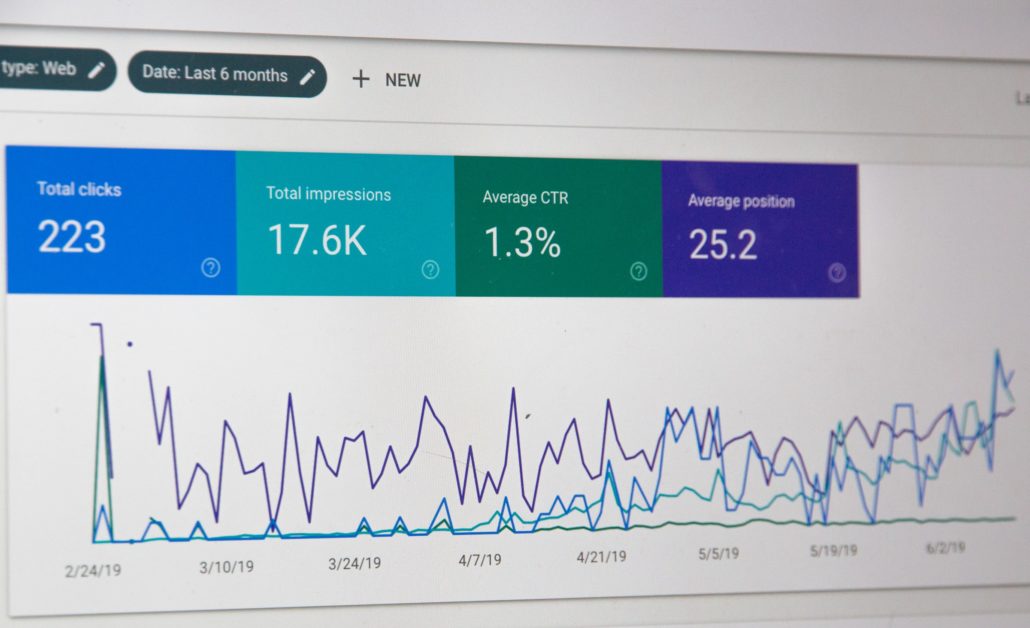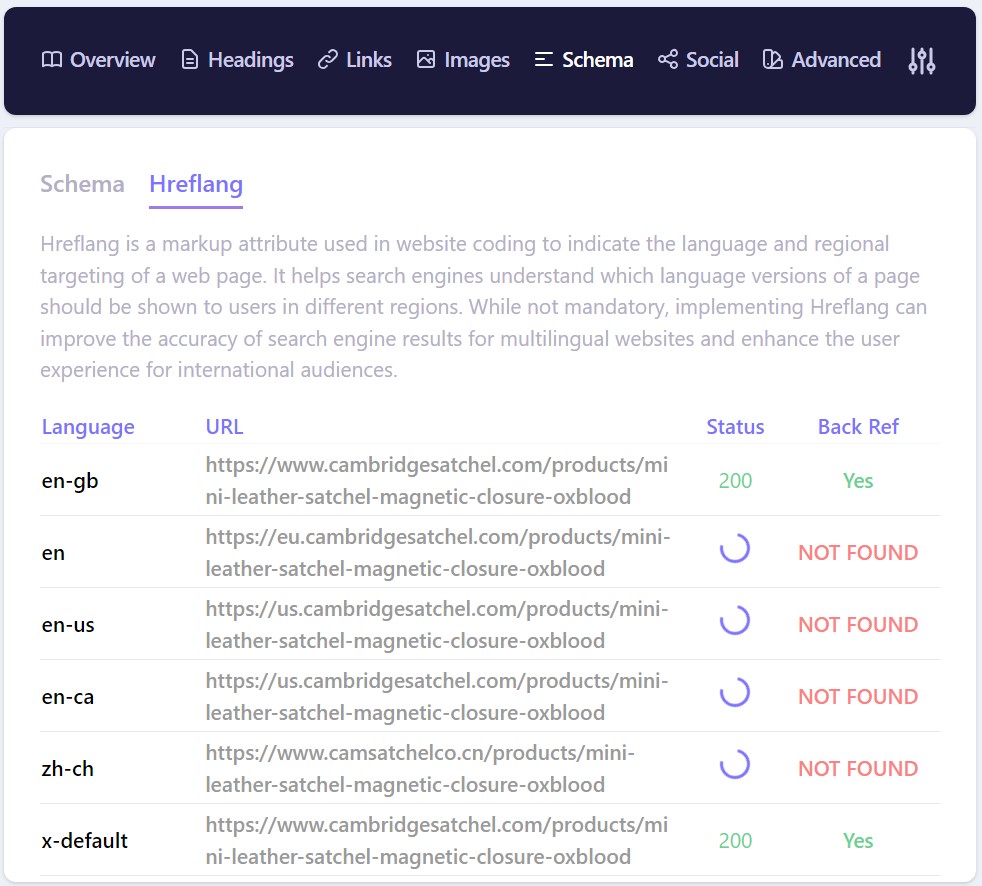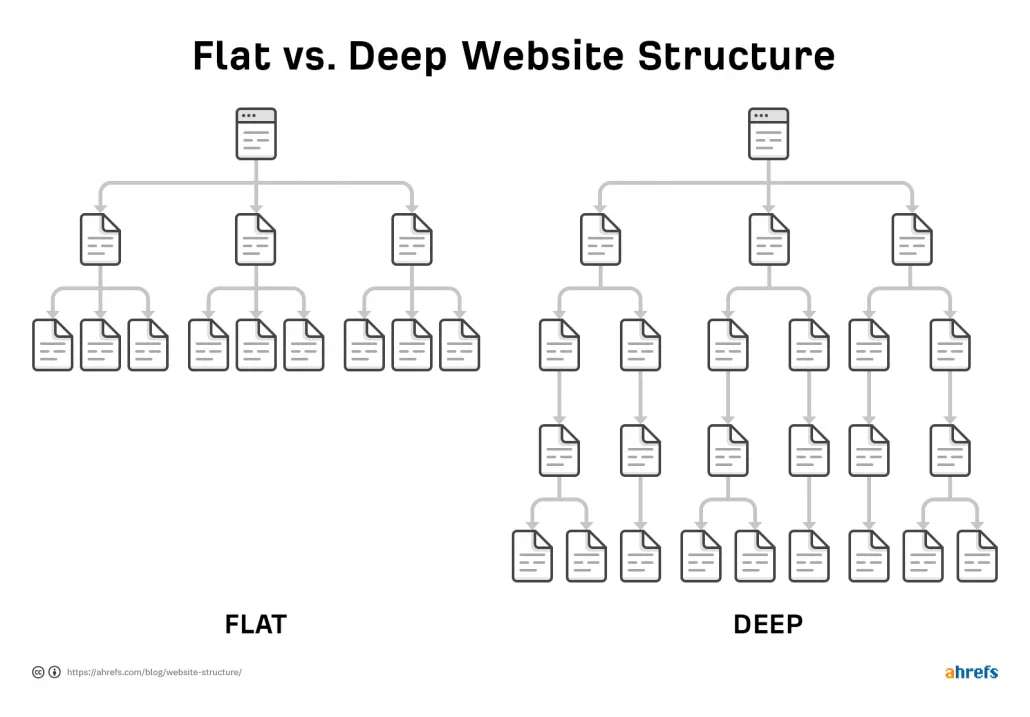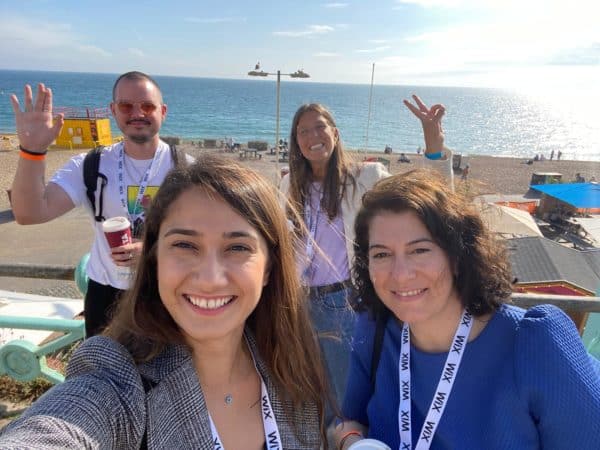Revisiting 3 big themes from Re:commerce 2024

It’s almost 12 months since Re:commerce 2024, which proved to be a fascinating event filled with expert insights from some of the brightest minds working in e-commerce, digital marketing and SEO.
We summarised the event’s key takeaways here, but ahead of Re:commerce 2025 on Friday 16th May we wanted to revisit those themes and give our updated take, and a hint of some of the hot topics and insights we’ll be sharing at this year’s event.
AI continues to reshape search
Unsurprisingly, artificial intelligence was a key topic of discussion for multiple speakers at Re:commerce 2024, including how it’s reshaping search.
While our job used to be to create content that resonated with users and was optimised for search algorithms, we’re now also needing to think about how to get visibility with AI in the mix. Focus is needed on brand connection and bringing our A-game when creating content. AI won’t surface our content unless it adds value to the end user.
Jono Alderson, an award-winning technical SEO consultant with almost 20 years experience in the industry, discussed how we all need to take more responsibility for the low value pages being created by AI.
As Jono points out, what we fail to consider is that there are lots of people just like you following the exact same process for content production.
Figuring how to create unique, high value content isn’t necessarily a new issue for marketers, but AI is reshaping the search landscape. As Jono highlighted in his talk, Google (and other search engines) can increasingly synthesise results without having to send visitors to your website.
Dawn Anderson, international SEO consultant and MD at Bertey, discussed similar points in her talk. Dawn explained how AI is now more accurately predicting search preferences and outperforms human evaluation for ranking—all at a fraction of the cost.
Our take
In 2025, successful SEO strategies are starting to prioritise a strong focus on positive brand building, as well as an increased focus on efficient crawling and discovery of content. This isn’t just about surfacing content in Google Search, but across all touchpoints in the customer journey. Google has been crawling websites for decades now, but Answer Engine crawlers need a helping hand to see the ‘right’ content and serve it up to the user. Brand trust and deep subject matter expertise are now essential to achieving visibility.
Mediocrity is not a means of survival
» Read more about: Revisiting 3 big themes from Re:commerce 2024 »
The hidden costs of a botched site migration: Why ecommerce brands can’t afford to get it wrong

Are you planning a site migration for your company’s online presence? You might be looking to change your domain name, or move to a different CMS, or making some structural changes to how your website is accessed. In any case, a site migration is a challenging project an ecommerce website owner will ever take on, as they can have a significant impact on the site’s performance and visibility.
The costs of a poorly planned site migration can be catastrophic, leading to a collapse in organic traffic and revenue. So, making sure your site migration is well planned and executed is, of course, vital.
Top 10 Essential Google SEO Chrome Extensions: Updated 2024

SEO Chrome Extensions are a core part of any SEO’s toolkit. Google Chrome still dominates the browser market share worldwide, with over 63% of users using it across desktop devices as their leading browser of choice. This also makes it the most popular browser among SEO professionals, who have a wide variety of SEO tools, extensions, and plugins installed to help them conduct SEO more efficiently and effectively.
Here are some Google Chrome extensions for SEO that I have tried and tested practically for hundreds of hours in my SEO career. I highly recommend checking them out.
1. Detailed SEO Extension
This all-in-one SEO extension for Google Chrome provides SEO-related insights at the click of a button for any website you’re currently visiting. It includes:
- Displaying title tags, meta descriptions, meta robots tags, canonicals, etc.
- Headings, including all H1, H2, H3, etc., and links to robots.txt and sitemaps.xml.
- The ability to download all images.
- The ability to download all links.
- Useful shortcuts in the Advanced tab to external tools/platforms for insights.
My favorite feature is the Schema tab, which allows you to: a) Act as a Schema checker with an easy interface for review (although I wish it could also act as a Schema validator). b) Act as an Hreflang checker/viewer and validator, providing status codes and return tag status for all the hreflangs annotated within the extension and on the same page load.

Images Credit: Detailed &
» Read more about: Top 10 Essential Google SEO Chrome Extensions: Updated 2024 »
Google’s latest changes to FAQ results and How-To updates

In today’s digital landscape, where online visibility can make or break a business, the interplay between search engine visibility and user experience holds paramount importance for ecommerce businesses and websites alike. The ability to connect with potential customers and users hinges on the ease with which they can access relevant information. As search engines continually evolve to refine their algorithms and offer more user-centric results, it’s crucial for businesses to adapt and optimise their content accordingly. In line with this, Google’s recent update pertaining to Frequently Asked Questions (FAQs) and How-To content has brought about a transformative shift in how information is presented on the search engine results pages (SERPs).
Understanding Google’s FAQs and How-To Update
Previous updates revolved around optimising structured data markup—a vital component in helping search engines comprehend the context of web content. By revamping the handling of FAQs and How-To content through structured data, Google aimed to enhance the quality of search results. This, in turn, enabled users to make informed decisions more efficiently and with greater confidence.
» Read more about: Google’s latest changes to FAQ results and How-To updates »
Search Generative Experience (SGE): first impressions, feedback, and potential impact on SEO

A LOT has been said about Google’s new Search Generative Experience since it was announced last month, and as we eagerly await access to its experimental phase within Google Search Labs. Let’s delve into the initial impressions, post-initial impressions, and the wider community feedback surrounding this search experience change, which has had the wider SEO community talking non-stop!
[If you want to get a true understanding of SGE from a very top level perspective, I highly recommend reading this piece on Wordstream which explains SGE in the most simple way possible.]
Search with generative AI –
Impact of the September 2022 Core Update Across UK Ecommerce Sites

The Re:signal eCommerce SEO Report (based on Sistrix organic visibility data in Google UK for mobile-based searches) was updated yesterday to provide the most up-to-date figures following the rollout completion of the September 2022 core update. The report aims to show which brands have seen search visibility changes and provides a look back at how the eCommerce industry trends and challenges have impacted the market over the last 12 months in weekly intervals.
While Google keeps rolling out search ranking updates (as many as 3 significant updates in the last 1 month alone), and we have the last 52 weeks of search visibility data handy, we thought it would be great to see the impact following:
- September 2022 core update
- September 2022 product reviews update
- August 2022 helpful content update
Before digging into the data &
» Read more about: Impact of the September 2022 Core Update Across UK Ecommerce Sites »
What is SEO? How To Optimise Your Website For Google

Introduction to SEO – How To Optimise Your Website For Google
Did you know that 53% of all trackable website traffic comes from organic search (BrightEdge)? However, according to AHREFs, 90.63% of pages get no organic search traffic from Google. So despite the potential of organic search, many of us still haven’t captured more than double our current traffic levels. Is that because we, as marketers and webmasters, still aren’t sure what SEO is? Or are we just unsure how to optimise our websites for Google?
What Is SEO?
SEO is an acronym for Search Engine Optimization. So, SEO is the process of improving the quality and quantity of a website to get more organic visitors from search engines. Focus has moved from keywords to the user, their consumer journey and solving their problems. The key to success is to create the right content, for the right user, at the right time, to help them resolve their current problems.
Are SEO And SEM The Same?
» Read more about: What is SEO? How To Optimise Your Website For Google »
What is Technical SEO And How Can You Improve It?

What is Technical SEO And How Can You Improve It?
Google uses over 200 factors to judge and rank web pages according to SEO research, and around 20% of these factors are based on your website’s technical health. So working on improving your technical SEO is important. But what does that mean these days? And what are the most important tech SEO factors?
What is Technical SEO?
Technical SEO is a type of search engine optimization that is all about improving the infrastructure of your website. As the name suggests, it involves optimising the aspects of your website that affect its technical health, from page speed to URL structure.
The aim of these optimizations is to help search engines to crawl, index, and ultimately rank your content while also providing a better user experience to searchers. So, to really understand how to work on your technical SEO, you need to understand how search engines work.
How Search Engines Work
Search engines, like Google, need to discover all of the pages on the internet, understand the content on them, and decide which ones best match each search query made by its users. For context, there are 5.6 billion searches made every day, so Google needs to be efficient, accurate, and fast.
To do this, search engines work in three steps:
-
Crawling
Google sends robots, called Googlebots, to discover all the pages on a website. Googlebot does this by starting from the homepage and following all of the links until it runs out of time.
-
Indexing
Once Googlebot has collected all the web pages that it can find, it takes a snapshot of them and returns to Google, where the content is processed, understood, and stored in an index next to other related pages.
-
Ranking
When someone makes a search, Google will look through its index to find the most relevant pages. It will then rank these results by relevance using complex algorithms.
Technical SEO is about making this 3-step process as efficient and slick as possible to give your content the best opportunity to rank.
How To Improve Your Site’s Technical SEO
When it comes to working on your site’s technical SEO, you need to consider how you can make it easy for Googlebot to access your site, find all the content, understand all of the content, and know when to rank it. This involves optimising several aspects of your website, including:
- Site architecture
- URL structure
- Robots.txt
- XML sitemaps
- Structured data
- 301/302 redirects
- Canonical tags
- Hreflangs
- Noindex / Nofollow
- Structured Data
- PageSpeed optimization
Site Architecture
Tip: Use a Flat, Organised Site Structure
Site architecture is how your web pages are structured and linked in relation to one another. This can include internal links, category structure, menu navigation, and more.
Generally, there are two main types of site structure, only one of which is more effective for SEO and users.
» Read more about: What is Technical SEO And How Can You Improve It? »
Re:signal at BrightonSEO – September 2021

September 2021. The month that we finally made a return to in-person conferences. It was strange, beautiful, tiring, and welcome. After doing it all online over the last 18 months, a two-day stint at BrightonSEO was diving in straight in the deep end.
Around half of our team members made it down to BrightonSEO for the September 2021 conference, with the other half due to watch the online edition instead later this month.
What was our experience like?
I decided to ask the BrightonSEO first-timers in our team for their thoughts on the event;
» Read more about: Re:signal at BrightonSEO – September 2021 »
5 Steps to help you identify the cause of visibility loss

I was recently asked to speak at the SMX London conference on ‘Identifying Core Algorithm Impact and Key Actions to Recover From Its Search Visibility Loss’. My presentation got me thinking about the myriad potential causes for a drop in organic visibility and the juxtaposition between two constants; the ever-changing landscape of SEO and the basic principles behind how we identify and address the reasons for poor SEO performance.
At Re:signal, whenever we’re approached by clients with an organic visibility drop, we follow the same process, irrespective of the industry the client works in or the product/service they offer. Even if we have a strong suspicion about what the issue may be (core algorithm update, lost links, technical SEO issues, etc.), we go through this process to ensure that our efforts are addressing the issue at its root cause. In essence, it’s a process of elimination, analysing the available data to confirm what’s not an issue, before we embark on a strategy to address the real problem.
How do you identify the cause behind an SEO visibility drop? » Read more about: 5 Steps to help you identify the cause of visibility loss »






